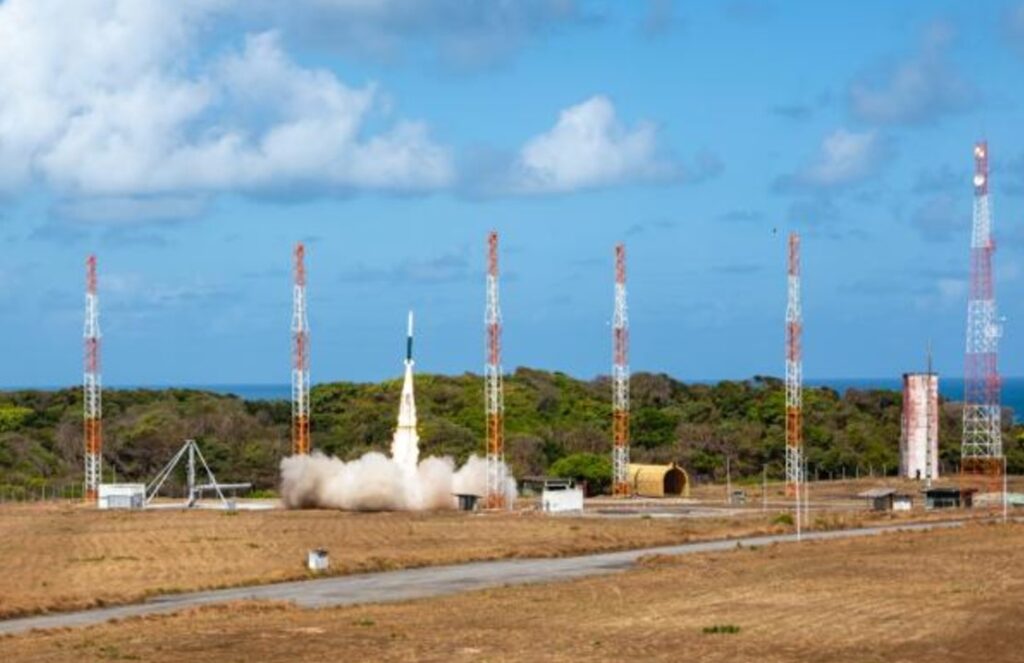The Brazilian Air Force has successfully launched a suborbital rocket using locally-developed technologies.
The mission was carried out at the “Barreira do Inferno” Launch Center in Parnamirim along the country’s east coast. The rocket’s trajectory was tracked by technicians and engineers, who tested the telemetry and radar response systems throughout the flight.
The mission lasted approximately six minutes, with the vehicle remaining in space for 2 minutes and 50 seconds.
“We are breaking paradigms and creating new perspectives for the future,” Director of the Department of Aerospace Science and Technology Brigadier Maurício Augusto Silveira de Medeiros explained.
“We have a Space Complex and, with the launch of this rocket, we demonstrate that Barreira do Inferno is fully capable of holding such events,” he added.
The Barreira do Inferno facility has a history of over 3,000 launches across 655 operations and has supported 265 spacecraft tracking missions.
Brazil’s Suborbital Rockets
The Brazilian Air Force’s Institute of Aeronautics and Space (IAE) partnered with local industries to test several sounding rockets from the S-30 family.
The most recent vehicle launched was the VS-30, a single-stage, solid-propellant suborbital rocket capable of carrying payloads weighing up to 330 kilograms (727 pounds) to a height of 160 kilometers (99.4 miles).
Previously, the IAE also tested the VSB-30, a rocket with solid propulsion stages. This rocket is rotationally stabilized and can carry loads of up to 400 kilograms (881 pounds), reaching altitudes of over 270 kilometers (167 miles).
Operation Potiguar
The latest launch of the VS-30 is part of Operation Potiguar, with a second phase expected to take place in late 2025.
The Brazilian Air Force plans to test another rocket of the same model to validate the recovery system for the vehicle’s upper section.
This platform includes an experiment compartment and electronic systems designed to interface with the payload.



